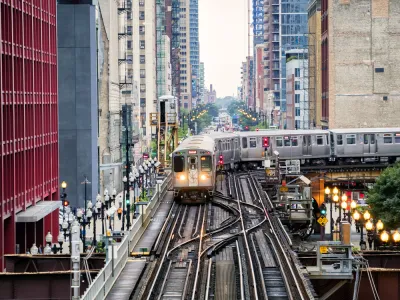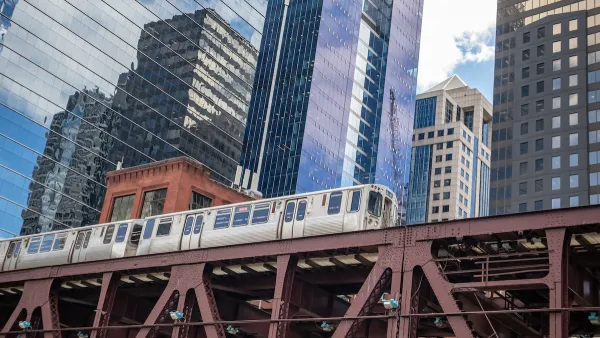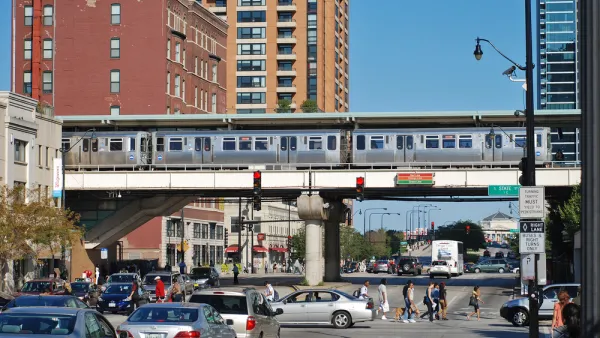Illinois transit agencies want to see changes to a law requiring them to collect half of their revenue from transit fares, arguing that low ridership and staffing shortages will lead to a massive budget gap without intervention.

The Regional Transportation Authority (RTA) in Illinois is calling on state lawmakers to change a law that requires half of the agency’s revenue to come from transit fares, citing continued low ridership after the pandemic, when emergency exemptions kept the agency afloat. Writing in Crain’s Chicago Business, Andrew Adams explains that “Last month, RTA's board approved a strategic plan that includes seeking increased funding overall to the system and developing a new model that is less reliant on fares.”
Members of the state Senate Transportation Committee said they would likely support assisting the RTS and Chicago Transit Authority (CTA), which it oversees, but expressed interest in addressing “certain reforms and issues, like safety and accessibility, that need to be addressed.”
“Beyond the long-term inequities in access, the CTA has also faced criticism from lawmakers and advocates about increased wait times for services and ‘ghost busses,’ a term to describe when a bus is scheduled to come but never does,” problems the CTA attributes to a worker shortage.
The challenges aren’t unique to the Chicago area. “Transit systems in Bloomington-Normal, Peoria, Rockford, Springfield, Champaign-Urbana, Decatur, Kankakee and DeKalb have all faced decreased ridership since the pandemic began.” According to Adams, “As of December, the combined number of trips being taken on these systems is down to 69 percent of what it was at the same time in 2019, according to data from the Federal Transit Administration.”
FULL STORY: Chicago transit looks to the state to help make up $730 million budget gap

Analysis: Cybertruck Fatality Rate Far Exceeds That of Ford Pinto
The Tesla Cybertruck was recalled seven times last year.

National Parks Layoffs Will Cause Communities to Lose Billions
Thousands of essential park workers were laid off this week, just before the busy spring break season.

Retro-silient?: America’s First “Eco-burb,” The Woodlands Turns 50
A master-planned community north of Houston offers lessons on green infrastructure and resilient design, but falls short of its founder’s lofty affordability and walkability goals.

Test News Post 1
This is a summary

Analysis: Cybertruck Fatality Rate Far Exceeds That of Ford Pinto
The Tesla Cybertruck was recalled seven times last year.

Test News Headline 46
Test for the image on the front page.
Urban Design for Planners 1: Software Tools
This six-course series explores essential urban design concepts using open source software and equips planners with the tools they need to participate fully in the urban design process.
Planning for Universal Design
Learn the tools for implementing Universal Design in planning regulations.
EMC Planning Group, Inc.
Planetizen
Planetizen
Mpact (formerly Rail~Volution)
Great Falls Development Authority, Inc.
HUDs Office of Policy Development and Research
NYU Wagner Graduate School of Public Service




























